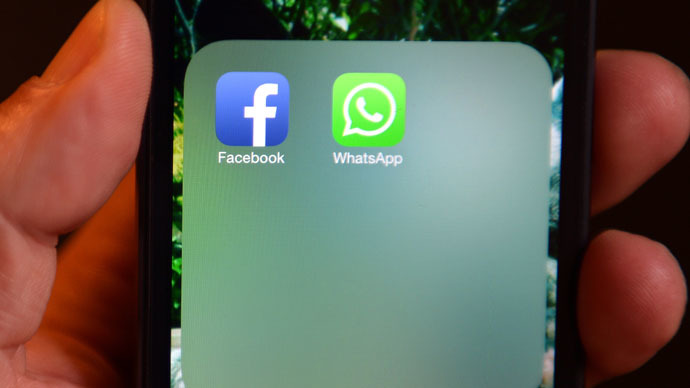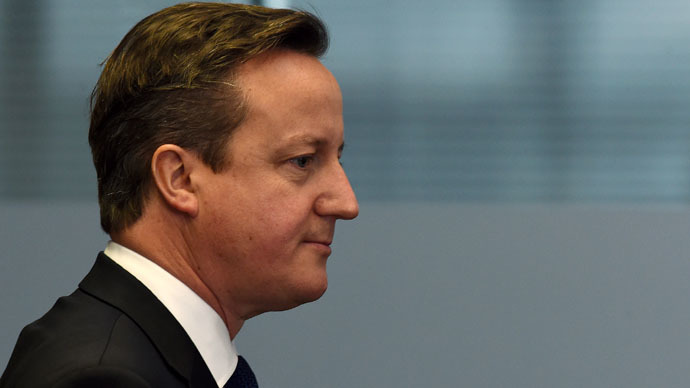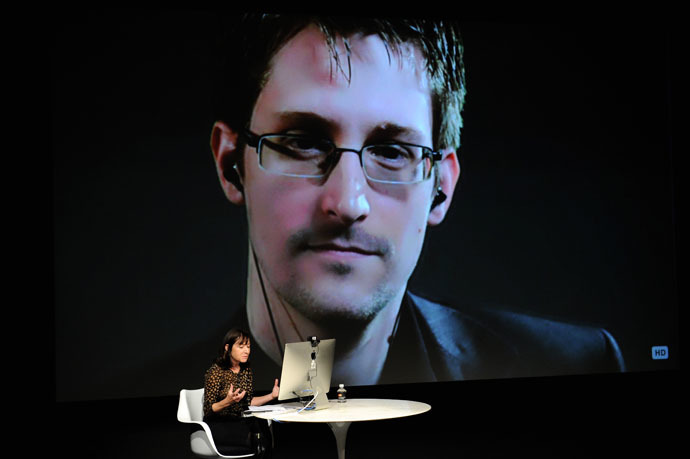Erosion of free speech? Cameron pledges to ban Snapchat and WhatsApp

PM David Cameron may block encrypted messaging platforms Snapchat and WhatsApp if the Conservatives win May’s general election, as part of the party’s agenda to bolster surveillance powers following last week’s terror attacks in Paris.
During a meeting with Britain’s security chiefs, the Prime Minister pledged to halt the use of communications platforms that can withstand snooping from security services who are in possession of a warrant.
Such software applications focus on popular messaging and social networking apps that deploy encryption techniques to protect users data.
WhatsApp, Apple’s iMessage and FaceTime, which encrypt information in this manner, could all be targeted by the Conservatives’ proposed policy.
Cameron also pledged to revive the Tories’ much-criticized “snoopers charter” to aid security officials in monitoring online activity.

In April 2014, the European Court of Justice ruled against the introduction of the Snooper’s Charter, warning it would culminate in privacy rights violations. The Court outlined a more moderate data retention program that would aid criminal investigations.
But in early July it emerged the government was seeking to push through emergency legislation, which would flout the Court’s judgment and re-legislate for the blanket retention of data.
The snooper’s charter subsequently caused a rift in government, however, after it was blocked by Deputy Prime Minister Nick Clegg on the grounds it posed a risk to civil liberties.
Home Secretary Theresa May accused the Liberal Democrats of “outrageous irresponsibility” for blocking the legislation at the time.
Speaking on Monday, Cameron asked whether a platform of communication that is inaccessible by state authorities is wise.
In a climate of heightened mass surveillance, firms such as WhatsApp have remained determined to continue offering encrypted services.

Public awareness about the importance of encryption mushroomed in the aftermath of former NSA computer analyst and whistleblower Edward Snowden's disclosures on NSA and GCHQ mass snooping.
Civil liberties groups warn attempts to limit the use of privacy tools under the auspices of protecting national security are a violation of citizens’ privacy rights. Privacy rights advocates say encrypted platforms are important tools for campaigners and activists.
In October 2014, Parker Higgern, an activist at the Electronic Frontier Foundation, emphasized the importance of maintaining such privacy tools in an era of mass surveillance.
“It's essential that the use of encryption, anonymization techniques, and other privacy practices is not deemed a suspicious activity,” he said.
“Rather, it must be recognized as an essential element for practicing freedom of speech in a digital environment.”
Campaigners say encryption can also help victims of criminal activity and those in oppressive regimes to remain safe and secure.











